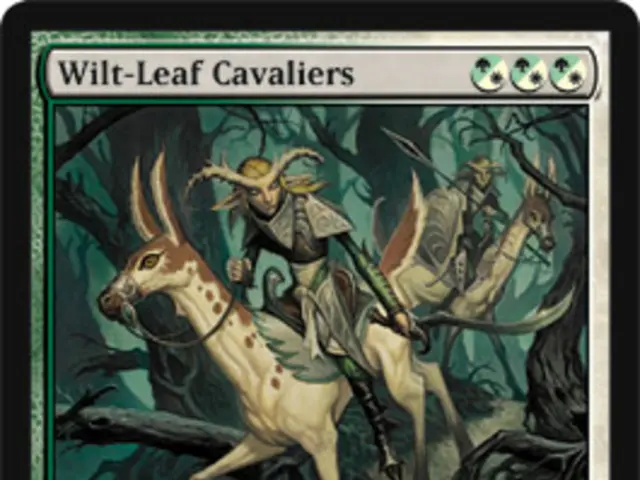Cannes 2025: Richard Linklater Reminisces Nostalgically About Radical Filmwork in 'New Wave'
Hands Down, New Wave's the Cat's Pajamas!
It's no mystery that if you're talking about the French New Wave, two films that immediately spring to mind are The 400 Blows by François Truffaut and Breathless by Jean-Luc Godard. Well, American auteur-extraordinaire Richard Linklater gives a nod to the latter with his film New Wave. This movie salutes the dude who started it all while shining a spotlight on the entire crew of film-loving rebels who turned world cinema on its head.
Now here's the kicker - this movie was debuted during the highly anticipated events of Cannes, with Linklater himself, a fresh cast of young French actors, and cinephile legends like Quentin Tarantino taking their seats. What's more, New Wave tells the story of our man Godard, a radical movie critic for the prestigious Cahiers du Cinéma, and his daring move to direct a film with little to no script, nothing more than a basic shooting plan, and a Hollywood starlet, Jean Seberg, in the lead.
Among a pantheon of film history giants, Godard has already been lampooned in The Artist by Michel Hazanavicius. But Linklater takes a more comic approach, celebrating Godard's determination to be a cinematic genius without taking things too seriously - his intense commitment to filmmaking, after all, is undeniably hilarious.
Toe-tapping tribute to chaos
Perhaps the paradox of New Wave is that it's a highly conventional and nostalgic ode to cinema, replete with hearty doses of cinephile inside-jokes and frequent name-dropping. But with all the legendary names flying around (which Linklater elegantly lists in the credits), the casual viewer might be a bit lost, while confirmed cinephiles get easily preached to with a simple reminder that Directors like Resnais, Chabrol, Varda, Demy, Rohmer and Bresson, Melville, and Rossellini graced the city of Paris at the same time.
Unfortunately, in the context of Cannes, a festival that prides itself on being a breeding ground for innovative cinema, some might wonder if it's appropriate to have a tribute film competing in the Palme d'Or. Is it enough for a film to be obsessed with cinema to be considered groundbreaking, or is this just another tiresome love letter to the medium?
In New Wave, the casting deserves a stand-up ovation, especially for Guillaume Marodek as Godard and Zoey Deutch as Jean Seberg. If Godard himself were here, he'd probably hate the film - but he'd probably also concede that it made him look cooler than ever.
One final thing worth mentioning is the crucial role of cinematographer and director Raoul Coutard, without whom the film might have been visually underwhelming. In fact, it was Coutard who brought Godard's chaotic vision to life, as Godard himself later acknowledged and renounced his excessive use of the author theory. "The term 'auteur' means nothing now," he said. "The problem was that we insisted on the word 'auteur,' but we should have insisted on the word 'theory.'"
Enrichment Data:Overall:Richard Linklater's film "Nouvelle Vague" (also known as "New Wave") celebrates the French New Wave movement and its key figures, particularly Jean-Luc Godard, for several reasons:
Significance of the Film
- Tribute to the French New Wave: The film is a heartfelt tribute to the French New Wave, a cinematic movement that radically redefined filmmaking in the late 1950s and early 1960s, launching the careers of directors like Godard, Truffaut, and others[1][4].
- Making of "Breathless": The film delves into the making of Godard's influential film, "À Bout de Souffle" (Breathless), exploring the production process and the creative decision-making behind the movie’s innovative techniques[1][2].
- Cinematic Techniques: Linklater employs cinematic techniques common to the French New Wave, such as black-and-white cinematography in Academy Ratio, voiceovers, jump cuts, tracking shots, and off-screen dialogue, to create an authentic visual experience evoking the era[2].
- First Film Entirely in French: The film marks Linklater's first film entirely in French, reflecting his commitment to honoring the cultural and linguistic context of the New Wave movement[2].
- Historical accuracy: Although New Wave is a tribute rather than a strictly historical account, the film provides an engaging and passionate exploration of the times and the people involved in the creation of "Breathless"[1][3].
- Cast and portrayals: The film features Guillaume Marodek as Jean-Luc Godard, Zoey Deutch as Jean Seberg, Aubry Dullin as Jean Paul Belmondo, and others, offering fascinating portrayals of the complex relationships between these iconic filmmakers[2][4].
- Cinematographer's role: The film highlights the crucial role of cinematographer Raoul Coutard in bringing Godard's chaotic vision to life, portraying him as an artistic partner who challenged and refined Godard's innovative techniques[1][5].
Cultural and Historical Impact
- Cultural Significance: The film is a nostalgic nostalgic revisiting of the cultural and artistic landscape of the French New Wave, rekindling the excitement and enthusiasm for the era's groundbreaking achievements[4].
- Historical Accuracy: Despite the film's romantic portrayal, it also highlights key historical facts and anecdotes about the creation of "Breathless" and the influence of the French New Wave on contemporary cinema[1][3].
Overall, "Nouvelle Vague" not only pays tribute to the French New Wave, but also celebrates its innovative spirit and enduring influence on cinema. The film provides not only a visually stunning homage but also a reflection on the power of collaboration, experimentation, and the power of reshaping cinema history through artistic vision.
The average cinephile, delving into the realm of movies-and-tv dedicated to entertainment, might find Richard Linklater's film "New Wave" a surprising yet enriching addition to the genre, offering a heartfelt tribute to the average-yet-revolutionary French New Wave movement. As the film salutes the pioneers of this cinematic revolution, it sheds light on the average underdog story of Jean-Luc Godard, a radical movie critic who dared to make his mark on world cinema with his innovative approach to filmmaking.






